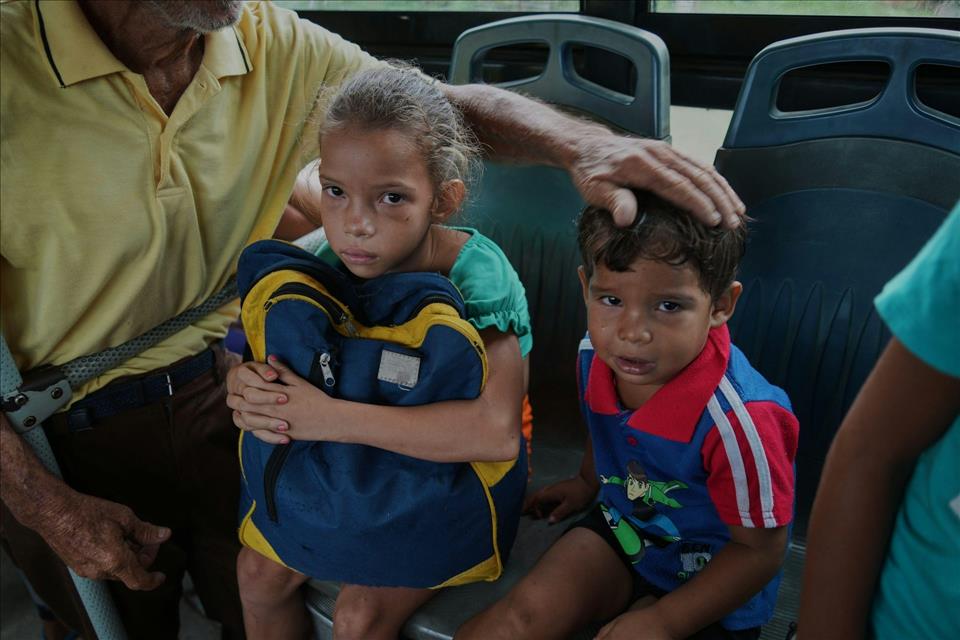
The Psychological Toll Of Hurricanes Major Storms Leave More Than Wreckage Behind
Once the winds fall silent, anxiety and grief settle in. In Jamaica, where Hurricane Melissa made landfall as a category 5 storm, these emotional effects are already visible. The fear, disconnection and exhaustion that follow a disaster of this scale are not fleeting. They can shape lives for years.
The damage is not only about what is lost, but about what is transformed. Familiar spaces become wreckage. This disorientation tears at a person's sense of safety and belonging, creating what psychologists call “environmental grief”: the distress that comes from seeing a cherished environment damaged beyond recognition. Rebuilding is essential, but it rarely restores that sense of home.
Hurricanes create deep anticipatory anxiety, along with fear of recurrence. Being unable to reach loved ones in the aftermath can be one of the most distressing experiences. When power lines collapse, mobile phone towers fail and the internet disappears, silence itself becomes terrifying. Not knowing whether a loved one is safe brings panic and helplessness.
Studies show that when communication systems collapse, anxiety levels rise sharply and sleep problems become common. Nightmares and flashbacks can continue long after electricity is restored. For many survivors, this psychological isolation is worse than physical displacement.
Repeated exposure to hurricanes – through direct loss, evacuation or even media coverage – can heighten psychological sensitivity over time. Research shows that each subsequent storm compounds mental strain, leaving people more vulnerable to lasting emotional distress.
Long-term studies after Hurricane Katrina found that symptoms of post-traumatic stress disorder (PTSD) can persist for more than a decade. One in six low-income mothers were still experiencing symptoms consistent with PTSD 12 years later. Those who already had mental health challenges before the hurricane were even more likely to suffer long-term effects.
Life in limboResearch on displacement and trauma describes recovery as“life in limbo” – a period when survivors are neither in crisis nor in full recovery, suspended between exhaustion and obligation. This state is increasingly common in communities recovering from climate-related disasters as they try to rebuild their homes, social networks and sense of stability.
As people pick up the pieces, the emotional cost grows. Many spend weeks clearing mud, repairing homes and navigating bureaucracy to access aid, often while caring for children or elderly relatives. These overlapping burdens deepen fatigue and despair.
Even the sounds of recovery – chainsaws, water pumps, cranes and bulldozers – can keep people on edge. Such noises may trigger fear or panic long after the winds have passed. Chronic uncertainty about jobs, shelter and safety drains both body and mind. A 2023 study found that people in hurricane-affected regions reported up to 14.5% more“poor mental health days” each month for years after the event.
For women, the psychological weight of climate disasters is often heavier. Research shows that women in climate-affected communities, particularly in the developing world, shoulder much of the emotional labour. They calm children, care for elders, manage scarce resources and suppress their own fear to hold families together. In low and middle-income settings, this invisible care work sustains households but takes a lasting toll on women's mental health.
Beyond resilienceHurricanes are not simply sources of“stress.” They are collective traumas. Across the Caribbean, emotional wreckage remains long after debris is cleared.
This is why the idea of resilience deserves scrutiny. Headlines that celebrate the“resilience” of island communities risk masking deeper psychological impacts. Endurance is not empowerment. It often reflects the necessity to survive amid weak infrastructure, limited aid and fragile mental health systems.
Calling people resilient can sound like praise, but it can also hide the reality that many are forced to endure impossible conditions. Survival is not proof of strength – it is often a response to inequality, neglect and the absence of real support.
The idea of resilience sounds positive, but it can be misleading. When communities are praised for being resilient, it implies they can cope without help. This framing risks excusing the inequality and neglect that make recovery so hard. People are surviving because they must, not because the conditions are acceptable.
The Intergovernmental Panel on Climate Change reports that warmer oceans are already making tropical cyclones stronger and rainfall heavier. As climate change drives more frequent and intense storms, adaptation must go beyond rebuilding homes and roads. It must also include psychological preparedness for recurring trauma and uncertainty.
True recovery is collective, not individual. Communities need trust, shared care and systems that protect mental health as much as physical safety.
For Jamaica, recovery will mean more than clearing mud or rebuilding homes. Fear and anxiety will linger long after the infrastructure is repaired. Markets, churches and neighbourhoods that once anchored communities may be gone. Families relocated inland may feel disconnected from the coasts that shaped their lives.
Images of people“picking up the pieces” may look like resilience, yet beneath them lies deep exhaustion. Survival should never be mistaken for wellbeing. The winds of Hurricane Melissa have passed, but their echo will live on in the minds of those who endured them. These communities – and their mental health – must not be forgotten.

Legal Disclaimer:
MENAFN provides the
information “as is” without warranty of any kind. We do not accept
any responsibility or liability for the accuracy, content, images,
videos, licenses, completeness, legality, or reliability of the information
contained in this article. If you have any complaints or copyright
issues related to this article, kindly contact the provider above.

















Comments
No comment